Moon
Adapted from a story by Duncan Jones and directed by him, Moon is the directorial debut of the man known to most as Zowie Bowie. Moving away from his famous father's name, presumably to make his own and not be accused of riding on coat tails, he wrote the screenplay specifically for Sam Rockwell to play the lead as they had previously tried to collaborate but couldn't agree. After some negotiations and the finished screenplay being written by Nathan Parker, Rockwell signed on the dotted line.
Rockwell plays Sam Bell, an astronaut alone on the moon keeping an eye on the four harvesters which patrol the surface collecting helium 3, which now, cleanly and efficiently, provides most of Earth's power. Bell has to monitor the machines and collect the full canisters and send them on to Earth. To help keep him sane and run the base, he has Gerty, an AI computer system that is there to monitor the base and serve Sam's interests.
With the live communication feed to Earth down, Sam must rely on delayed messages that he sends to his wife and child, and receives back, along with other things like recordings of football games. The company are also monitoring him and send their own missives to make sure that he's alright and the operation is running smoothly. However, after spending nearly three years alone on the base and nearing the end of his contract, Sam's sanity is stretching to breaking point and he begins having visions of his daughter. One of these occurs when he is approaching one of the giant harvesters and results in an accident.
Waking up in the infirmary, he is told by Gerty that he is alright but may have suffered some slight brain damage which could explain his memory loss. Keen to find out what happened and how he got back, he tricks the computer into lifting the lockdown placed on the base by his superiors and let him out to inspect non-existent exterior damage. Travelling to the crashed vehicle Bell makes a strange discovery, a man who looks exactly like him, and this has far reaching consequences for both of them.
I heard good things about Moon before I saw it at the cinema, in a small independent arthouse theatre, as it wasn't shown in the multiplexes near me and was very impressed by what I saw. My opinion hasn't changed after watching it at home as it is an intelligent and thought-provoking science fiction film with echoes of 2001: A Space Odyssey, Outland and Silent Running. Jones pays homage to all the films and directors that have inspired him, though you need to look carefully for most of them.
As independent films go, this is excellent and when you consider that it is a debut work and was made for only $5 million (compared to Sunshine which had a $50 million budget), it makes it even more of an achievement. Gathering a good cast, led by Sam Rockwell and Kevin Spacey (who voices Gerty), Jones has made a very impressive film that improves with repeated viewings. Rockwell's performance is quite extraordinary, quite possibly the best of his career, and Spacey's voice is perfectly suited to a monotone computer who you're never quite sure if it is benign or malign. Moon is one of the best British films of 2009 and amongst the best sci-fi movies of recent years.
The Disc
Extra Features
There are two commentaries, both with Duncan Jones, and in the first he is joined by director of photography Gary Shaw, concept designer Gavin Rothery and production designer Tony Noble who provide a jovial yak-track in which they joke around and manage to include some useful information but it is low on fact and high on general ribbing.
Much more factual and dry (and that's a good thing) is the track with Jones and producer Stuart Fenegen who obviously worked closely together and provide an informative and enjoyable talk through the film, imparting information about the genesis of the project, the special effects and the in-jokes. If you will only listen to one of the two, this is it.
The Making Of Moon featurette is 16 minutes which is a good length as is doesn't get tiresome, nor is it too short as to be of little use. The piece includes interviews with members of the crew and Sam Rockwell and there is a fair amount of interesting facts and other tales from the shoot.
Creating the Visual Effects is an 11 minute featurette which shows how all the visual and CGI effects were done, and it's surprising how much computers were involved, which is always a good thing as it's only a problem when you notice the amount of CGI.
There are two Q&A sessions with Duncan Jones and members of the cast and crew, the first from the Science Centre in Houston where he isn't bombarded with hard science questions but it is a probing interview session that is very different from that at the Sundance Film Festival which is more of a general Q&A and they are both very informative and enjoyable.
Whistle is a 30 minute short film by Duncan Jones about a distance hitman who kills people around the world from his Swiss chalet. It is a gripping thriller that is extremely well made, though the CGI sequence is a bit ropey, with very good performances from the whole cast.
The disc includes the theatrical trailer, a selection of trailers for other Sony releases and an Easter egg showing Gerty playing table tennis. This is easy to find, just press up when Scene Selection is highlighted.
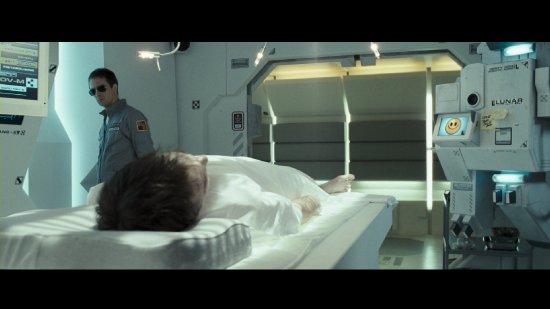
The Picture
Belying its extremely modest budget, the film looks extremely good, with clever use of CGI and miniatures. The model work gives the exterior shots a tangibility that CGI can't really do unless it's done very expensively and over a long time. As the shoot took only a month, it's incredible that the interiors are as well textured and as realistic as they are, with appropriately used computer graphics for the display boards and Gerty, which you don't notice until they are pointed out.
The HD picture is reassuringly crisp with inky blacks and excellent fine detail. There is one short scene where the contrast is a little grey but this doesn't detract from what is generally an excellent picture. The set decoration and costuming are all really good and make Moon look like a film with a much bigger budget.
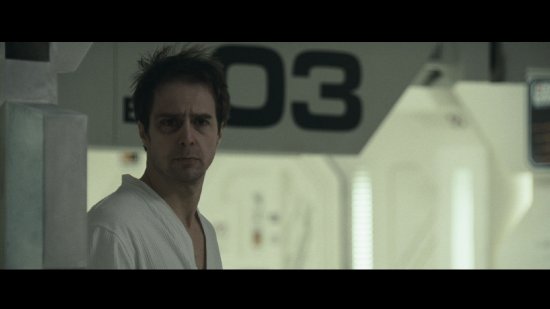
The Sound
The DTS-HD Master Audio track presents the audio clearly and uses the surrounds well for atmosphere and to increase the sense of isolation and growing paranoia. There are a couple of interesting source music choices, with one hit wonder Chesney Hawkes' The One and Only as Sam's alarm clock tune (it takes on another meaning on second viewing) and a great scene where he dances to Walking on Sunshine by Katrina and the Waves. Obviously Jones thinks that '80s music will be big in the future! The score, by Clint Mansell, is very well composed and delivered.
There is also a Dolby Digital 5.1 Thai option, and a small assortment of subtitles, which seem a little odd given all the languages that are usually available on a Sony BD.
Final Thoughts
I rate Moon very highly and it shows that Duncan Jones has great promise as a filmmaker. The disc is also very good, with excellent AV quality and a good assortment of fine extra features. Science fiction fans should definitely check this one out.
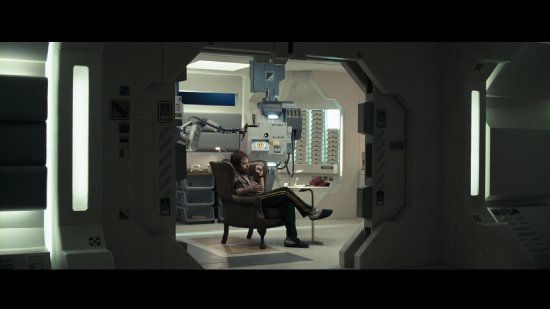
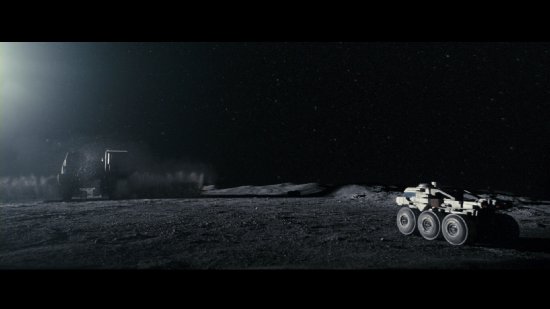
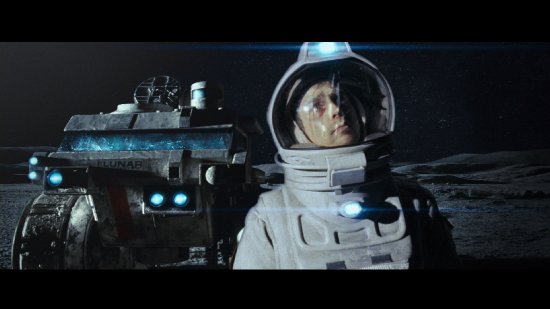
Your Opinions and Comments